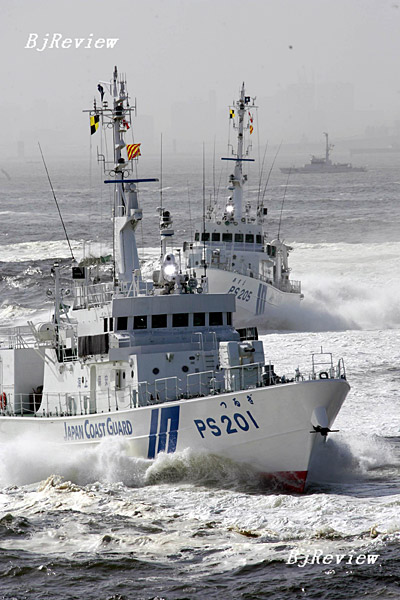
Shaping a "strategic and global partnership" with India. Creating a new two-plus-two security dialogue involving top foreign affairs and defense officials with Australia modeled on the one with the United States. Conducting joint military drills with the United States, India and Australia. Japan, under Prime Minister Shinzo Abe (who offered his resignation on September 12 at a press conference held at his office), is doing all these and more to form a strategic alliance with these three major countries, while purposefully excluding China, Chinese international affairs experts said.
"Abe's attempts to promote 'value-oriented diplomacy' and construct a 'four-nation alliance' are apparently directed at China," wrote Li Yan, a scholar at the China Institutes of Contemporary International Relations (CICIR), in World Affairs magazine. Japan is concerned that its status in East Asia would decline in the wake of China's development. Abe's vision of a "quadrilateral grouping" comprising Japan, the United States, India and Australia aims to expand Japan's diplomatic frontiers and to marginalize China by citing "common democratic values" and besiege the country geopolitically, he wrote.
But this vision is unlikely to materialize, because it runs counter to the "historical trend" and is unwelcome by the other three countries, experts said.
An unpopular initiative
During his recent visit to India, Abe called for a "broader Asia" partnership. He made the comments in an address to a joint session of India's parliament on August 22.
"This partnership is an association in which we share fundamental values as well as strategic interests," Abe said. "By Japan and India coming together in this way, this ‘broader Asia' will evolve into an immense network spanning the entirety of the Pacific Ocean, incorporating the United States of America and Australia."
Abe has proposed a four-way "strategic dialogue" between Japan, the United States, Australia and India. The quadrilateral dialogue kicked off on May 25 when the four countries' senior officials met for the first time on the sidelines of an Association of Southeast Asian Nations (ASEAN) Regional Forum meeting in Manila. During the forum's 14th annual meeting in Manila on August 3, Japan actively lobbied for its "quadrilateral initiative."
Japan's initiative encountered a setback at the very beginning, CICIR's Li said. The United States takes a prudent attitude toward it, he said. One of the reasons is that Washington is worried that its strategic interests in East Asia may be jeopardized if Japan takes this opportunity to get rid of its control and dominate the future of the Asia-Pacific region.
The U.S. Congress has decided to keep the ban on the export of its latest F-22 fighters. It also has adopted a resolution calling on Japan to formally acknowledge, apologize for and take responsibility for forcing women from countries it occupied into sexual slavery during World War II. These moves exemplified Washington's concern over Japan, Li said.
Moreover, Li pointed out that the United States is concerned that Japan's quadrilateral initiative may provoke China into fierce reactions, which could harm Asia-Pacific security and stability. The United States needs to cooperate with China on a series of issues such as the North Korean nuclear issue, the Iranian nuclear issue and antiterrorism, he said. Provoking China is not in the interest of the United States, he added.
| 